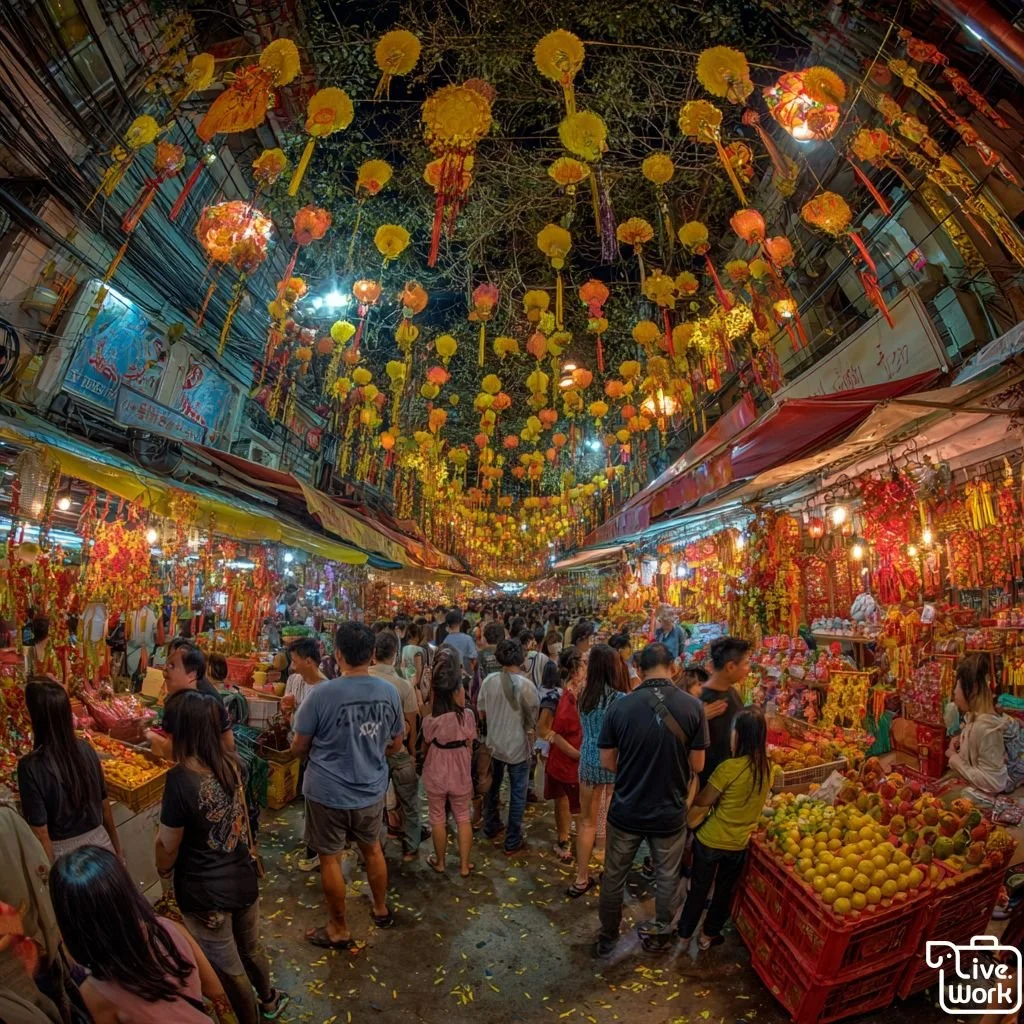Thailand’s Vegetarian Festival: A Celebration of Spirit, Culture, and Cuisine
Thailand is famous for its colorful festivals, but few are as striking, immersive, and spiritually charged as the Vegetarian Festival, also known as Tesagan Gin Je (เทศกาลกินเจ). Rooted in the traditions of the Chinese-Thai community, this annual event transforms parts of Thailand into a vibrant spectacle of devotion, discipline, and dazzling food.
Held during the ninth lunar month (usually September or October), the Vegetarian Festival is more than abstaining from meat—it’s a holistic period of purification, reflection, and community bonding.
🌏 Origins and Spiritual Significance
The festival traces its roots back over 150 years to Phuket’s Chinese immigrant communities, who began the practice as an act of penance and renewal. According to legend, a traveling Chinese opera troupe fell ill, and to regain health, they abstained from meat, alcohol, and worldly indulgences while performing Taoist rituals. Their recovery inspired the annual observance, which soon spread throughout Thailand.
The guiding principle of the festival is purity—of body, mind, and spirit. Participants wear white clothing to symbolize cleanliness, refrain from meat and stimulants, and avoid behaviors considered impure.
🥬 The Food: A Feast of Creativity
While the festival is rooted in Taoist and Buddhist traditions, it has also become a culinary highlight of the year. Streets across Thailand, especially in Phuket, Bangkok’s Yaowarat (Chinatown), and Chiang Mai, are lined with stalls offering a dazzling variety of vegetarian and vegan dishes.
Mock Meats: Soy- and mushroom-based proteins shaped into pork, chicken, or seafood lookalikes.
Classic Thai Dishes with a Twist: Pad Thai, curries, and stir-fries recreated entirely without animal products.
Street Snacks: Fried spring rolls, tofu satay, and savory dumplings.
Desserts & Drinks: Coconut puddings, sesame balls, and refreshing herbal teas.
The sheer creativity reflects Thai culinary ingenuity while promoting health-conscious and eco-friendly eating habits.
🔥 Parades and Rituals
Beyond food, the Vegetarian Festival is renowned for its dramatic rituals and processions:
Spirit Mediums (Mah Song): In Phuket, devotees enter trance-like states and perform acts of self-mortification—piercing cheeks, walking on fire, or climbing bladed ladders—as offerings to deities and to absorb community misfortunes.
Street Parades: Thunderous firecrackers and lion dances create an electrifying atmosphere.
Temple Ceremonies: Offerings, prayers, and rituals honor Taoist deities, ensuring blessings for participants and communities.
These practices are not intended for spectacle but as acts of devotion, sacrifice, and spiritual cleansing.
🏮 Where to Experience the Festival
Phuket – The heart of the Vegetarian Festival, known for its intense rituals and massive parades.
Bangkok’s Chinatown (Yaowarat Road) – A foodie’s paradise with endless vegetarian street food.
Chiang Mai – A quieter but equally rich version of the festival, with a focus on community and culinary traditions.
🌱 Modern Relevance
In recent years, the Vegetarian Festival has taken on additional meanings:
Health: Encouraging plant-based diets and reducing reliance on meat.
Sustainability: Supporting eco-friendly consumption practices.
Cultural Exchange: Attracting global visitors curious to experience Thailand’s blend of spirituality and spectacle.
✨ Final Thoughts
The Vegetarian Festival is more than a religious observance—it’s a living cultural phenomenon that bridges faith, food, and community. Whether you’re drawn to the spiritual rituals, the dynamic processions, or the extraordinary culinary creations, this festival offers an unforgettable glimpse into the richness of Thai-Chinese heritage.
To attend is to immerse yourself in a world where spiritual devotion meets culinary artistry, leaving you with not just memories, but a deeper appreciation of Thailand’s cultural diversity.
